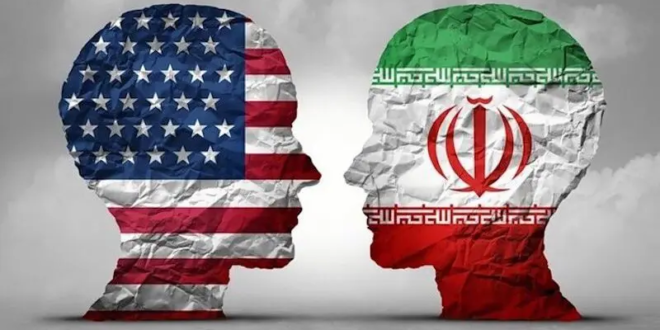The nuclear negotiations with Iran today are different from those of 2015. The talks with the Obama administration were limited to the uranium enrichment reduction in return for removal of sanctions. Today, Palestine is on the table. This creates an opportunity for the Gulf states and Iran to join hands and find a solution for the Palestinian issue.
Mohammed Saleh Sadiqian, an Iran-based expert, published the “negotiations framework” that the Iranian team delivered to US envoy Steve Witkoff on the first day of talks in Muscat. The framework included 10 points. The final point states: “The Palestinian cause has been and will remain the main source of tension in the region unless international and regional parties work to find a solution to the issue of the Palestinian people and end the state of occupation of the occupied Palestinian territories.”
Additionally, the ninth point indicated that peace in the region is not only the responsibility of Iran but also of “all parties concerned with this security, stability and peace in the Middle East.” Iran is expected to suggest to Trump a nuclear-free Middle East, which means that Israel would have to dismantle its nuclear military arsenal.
This is an important development, especially in light of the current turmoil the region is witnessing with Israel’s unhinged behavior. Any pressure on Israel is needed and welcomed by Arab states. Saudi Arabia has held its ground, confirming that there will be no normalization without a Palestinian state. Egypt and Jordan have maintained a firm position against any population transfer. However, Israel does not seem to care and the US is not putting any pressure on Israeli Prime Minister Benjamin Netanyahu. On the contrary, as soon as Trump took office, he signed off on a new weapons package to Israel.
It is obvious for all parties in the region that Israel is a threat. It has flattened Gaza and it is slowly destroying the West Bank. It attacked Syria without any “casus belli.” It encroached into Syrian territory, though Syrian President Ahmed Al-Sharaa clearly said he is ready to commit to the 1974 disengagement agreement. Israel is threatening Egypt and asking Cairo to dismantle its military infrastructure in Sinai. Arab states know that if Israel takes down Iran, it will be further buttressed and they will likely face more belligerence. They would probably have to handle another Nakba and its effect will last for generations to come.
In this framework, Iran can be viewed as a potential ally and not a foe. The Gulf states can stand with Iran in this round of negotiations. Actually, today, the Arab attitude is visibly different from 2015. Saudi Arabia’s Ministry of Foreign Affairs issued a statement welcoming the hosting of talks between the Islamic Republic and the US by Oman. Abdullah bin Zayed Al-Nahyan, the UAE minister of foreign affairs, called his Omani counterpart to discuss the development of the Muscat talks. This is a great opportunity for Iran as it will increase its leverage with the US.
In 2015, the Gulf states were antagonistic to agreement. This was viewed as a stab in the back by the Obama administration, which concluded a deal with the Iranians without taking into consideration any of their security concerns. Gulf states, on the other hand, were viewed by the Iranians as an impediment to the deal. Actually, the deal and the Obama administration’s arrogant and dismissive attitude toward the Gulf created turbulence in the region.
However, putting Palestine on the table will not be enough to win over the Gulf states. Iran needs to answer their security needs. This should be mutual. Gulf states should also give assurances to Iran. In the current environment and amid the looming Israeli threat, an Arab-Iranian rapprochement is more probable than ever. There is a general awareness that the different parties need to come together and overcome their mistrust in order to face the Israeli scheme. Iran and Saudi Arabia have the March 2023 security agreement brokered by the Chinese and can build on further cooperation.
In parallel with the nuclear talks with the US, Iran should launch serious and immediate negotiations with Saudi Arabia and other Gulf states. Two issues should be discussed. The first would be a binding security agreement for the different parties. It should be comprehensive, answering all the security concerns of the Gulf states as well as Iran. It should also be coupled with setting a verification mechanism that will allow the different parties to have trust in their counterparts.
The second pressing issue to be discussed should be how to have a common position on Palestine – a position that transcends joint statements and translates into real pressure on Israel and on its patron the US. Israel has always played on differences in the region to find allies.
Initially, Israel was an ally to Shah Mohammed Reza Pahlavi, but the relationship soured with the Islamic revolution. Israel engaged with Kemalist Turkiye, however the relationship changed with the AK Party being supportive of Palestine. Lastly, it tried to hype up the Iranian threat in order to get close to the Gulf states. However, if the region unites, Israel will be cornered and the US will be pressured. Washington will compel Israel into accepting a Palestinian state. This is an important opportunity for both Iran and the Gulf states. It should not be squandered. And the Iranians should understand that they have a chance to bring the Gulf states to their side in their negotiations with the US.
 Eurasia Press & News
Eurasia Press & News




